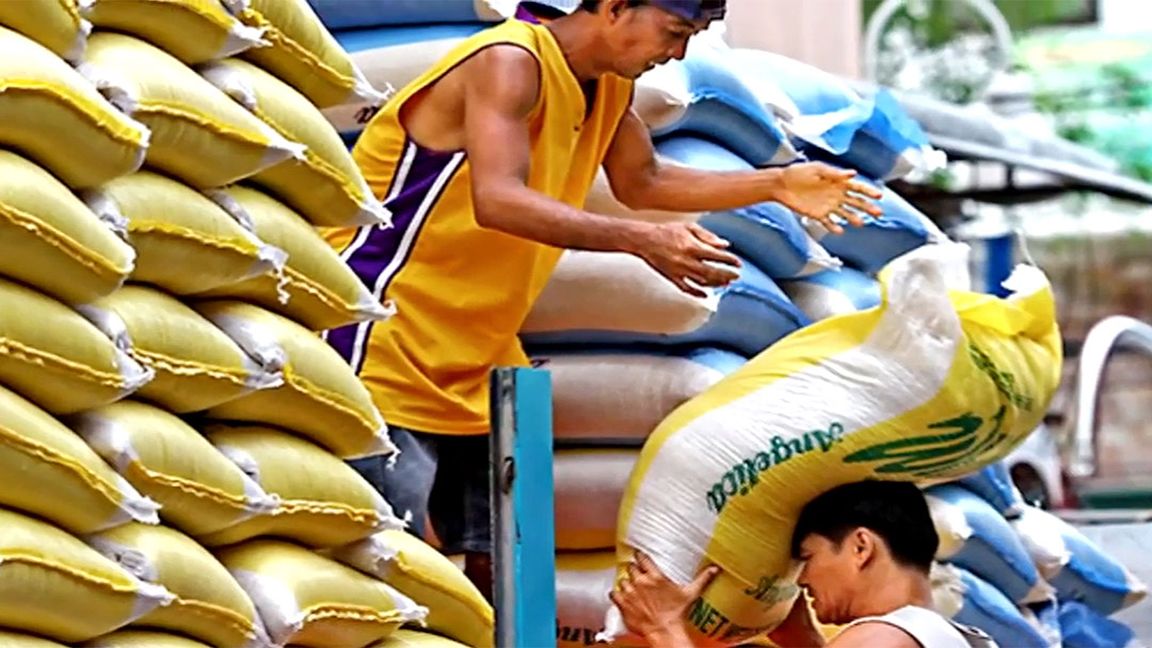Several farmers’ groups leaders are asking the incoming administration to repeal the rice tariffication law, which did little to raise the farmers’ incomes and productivity and barely benefitted consumers from the imported rice, which were priced high.
Farmers will discuss with the incoming administration a repeal of the Rice Tariffication Law, which they claimed has made little to no progress in meeting its objective of improving farmer prosperity after three years and had minimal gain for consumers.
“We are ready to discuss with the future administration to look at the problems and work on what needs to be done… None of (the law’s) promises were fulfilled. There was a drastic and recurrent drop in farmers’ incomes and farmgate prices,” National Manager of the Federation of Free Farmers Raul Q. Montemayor said in a virtual briefing.
“There were only minimal gains for consumers, no significant improvement in farmers’ productivity, cost of production, and competitiveness, as well as flawed packaging and poor implementation of adjustment and relief measures for farmers,” he added.
RTL, or Republic Act No. 11203, liberalizes rice imports, which used to be heavily regulated, with most imported rice bought through government-to-government deals. But, the law allowed private parties to import with fewer restrictions, though importers needed to pay a tariff of 35 percent on grain brought in from Southeast Asia.
The tariffs supplied P10 billion a year to the Rice Competitiveness Enhancement Fund, which was designed to kickstart the industry’s modernization.
Tugon Kabuhayan convenor, Asis G. Perez, a former fisheries director, said the law is approaching its three-year review period.
“With its automatic review (coming up), we want to know if the annual P10-billion rice fund is being spent, according to the law, which says that 50 percent should go to rice farm machinery and equipment; 30 percent to rice seed development, propagation, and promotion; 10 percent for expanded rice credit assistance; and another 10 percent to rice extension services. Specifically, we want to know if this allocation should be revised based on what our rice producers really need,” Perez said.
Montemayor said that the law did not provide enough cash assistance and instead drove up production costs.
Band-aid solution
“We estimate that for the first three years, the total loss for farmers was at P66 billion. The cost of producing palay (unmilled rice) went up. Cash assistance is only a band-aid solution to the problem. The government gives P5,000 per hectare and free seed, but it doesn’t fix the broken system that we have. There is a disconnect between the disease and the remedy,” Montemayor said.
The groups want the new government to reduce reliance on imports and focus on supporting farmers.
“We have to aim for self-sufficiency and stop relying on imports. Our country’s food security depends on our farmers but our government allows our farmers to be harmed first before they do anything about it,” the Magsasaka at Siyentipiko para sa Pag-unlad ng Agrikultura Regional Coordinator Rowena A. Buena said.
The farmers also sought an online database to track fund use from the tariffs generated by the law.
“We don’t know where all that money is going, or if it is being used properly. (The law) didn’t improve the lives of our farmers. We already know that this law failed. Future implementation… will not help. Give our rice farms the proper support and technology. Stop ignoring the problems,” Buena said.
Post- harvest facilities
Montemayor said the government should also invest in post-harvest facilities, establish alternative marketing systems, promote crop and income diversification, strengthen crop insurance and climate and price risk mitigation, and encourage participation and support of local government units.
“Three years ago, our position towards the law was to review the policy first. Now, looking at how it affected our farmers, we want this law to be (repealed). It did not fulfill any of the promises made. Not all farmers received assistance… The money is not being distributed to everyone. It went to the pockets of government officials. It went to a small minority of farmers who belong to organized groups. Individual farmers received nothing,” said Rene Cerilla, Legal and Policy Advocacy Officer of Pambansang Kilusan ng Samahan ng Magsasaka.
“Our government should be alarmed by the current situation. Majority of our farmers are old. There are no more young farmers to replace them because they see no future in farming. It won’t be long until these farmers start selling their lands. These lands will not be used for agricultural purposes. This is a threat to our nation’s food security. We cannot rely on Vietnam or Thailand for our food. If there is a shortage in these countries, we will be in trouble. We have to produce our own,” Cerilla added.
Tags: #RepealRTL, #farmers’groups, #incomingadministration, #agriculture
